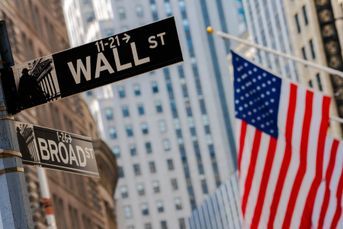Citi’s wind-down plan doesn’t make the grade, says FDIC

Regulator's board voted that the bank’s plan is deficient.
A top US regulator has found Citigroup Inc.’s blueprint for a hypothetical wind-down to be lacking, according to people familiar with the matter, a blow to Chief Executive Officer Jane Fraser’s multiyear bid to improve the bank’s risk controls.
A majority of the Federal Deposit Insurance Corp. board determined in a closed-door meeting on Thursday that the bank’s so-called living will was deficient, said one of the people, who asked not to be identified discussing the private discussion. The vote by the FDIC, which didn’t immediately respond to a request for comment sent outside of normal business hours, was earlier reported by the Financial Times.
Citigroup has been trying to improve its hypothetical wind-down plans for years. In late 2022, the FDIC and the Federal Reserve cited issues over how the bank handles data that “could materially impact the firm’s resolution capabilities sufficient to constitute a shortcoming.”
The FDIC’s most recent finding is an escalation of concern from that 2022 statement, which was based on plans the bank submitted in 2021.
Although the Fed would need to make a similar determination for Citigroup to face a penalty, the FDIC’s finding underscores the challenges that Fraser faces in improving the bank’s standing with regulators.
A deficiency is more severe than a shortcoming in terms of regulatory concern. Resolution plans were mandated as part of Dodd-Frank legislation passed following the 2008 financial crisis.
A Citi spokesperson on Thursday referenced a statement that the bank gave earlier in the week that said the lender continues “to make substantial investments to modernize our infrastructure, including the work we’re doing to automate data and regulatory reporting processes.”
“Our balance sheet and financial health remains strong, with high levels of capital, liquidity and reserves,” the bank said. “We continue to have confidence that Citi could be resolved without the use of taxpayer funds or an adverse impact on the financial system.”
Learn more about reprints and licensing for this article.








